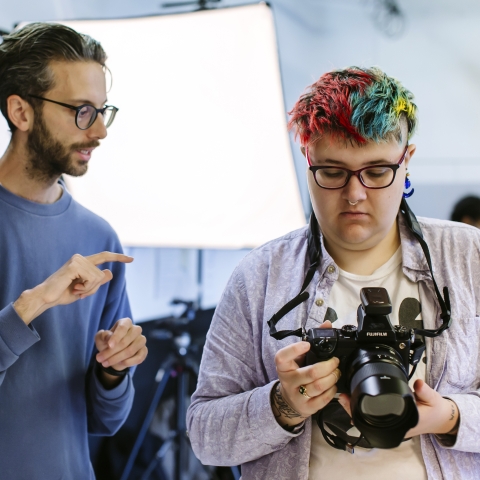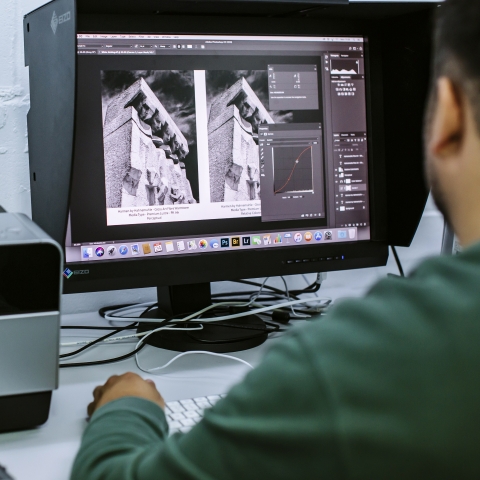
This career guide is designed to help University of Portsmouth students and recent graduates explore job options, key employers, and entry routes into the Photography sector.
Explore the photography career guide
Getting started in photography
Take the first steps to beginning your career in photography.

Gaining experience in photography
Find out how to build your experience in photography while you study.

Finding a job in photography
Explore different ways to find employment in photography after your graduate.

Enable University alerts
Turn on notifications for critical updates like closures, safety alerts, and urgent service disruptions.






